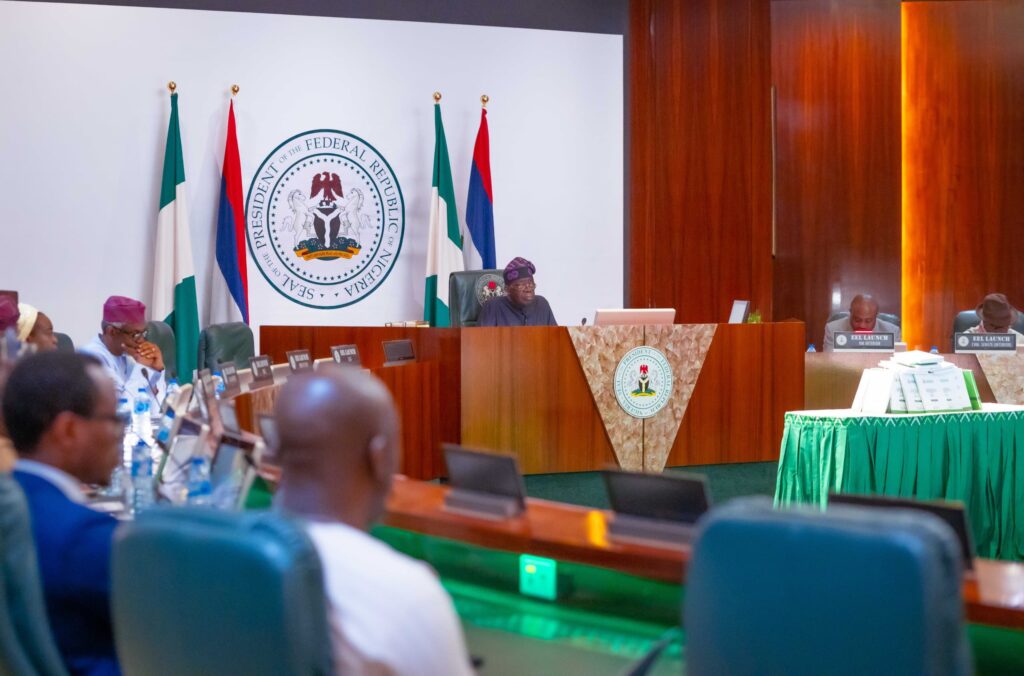
David Zack
The Federal Executive Council (FEC) has sanctioned the issuance of a N758 billion bond to settle outstanding pension liabilities for federal retirees, marking a significant step toward addressing long-standing financial obligations. The decision, reached during the second day of the FEC meeting at the State House in Abuja, empowers the Debt Management Office (DMO) to raise the necessary funds to clear pension arrears under the Defined Benefit Scheme.
Alongside this move, FEC approved a €30 million concessional loan from the French Development Agency (AFD) to support student accommodation projects across the country. Minister of Finance and Coordinating Minister of the Economy, Wale Edun, announced the approvals following the council meeting presided over by President Bola Tinubu.
In a related development, the federal government allocated N203.6 billion for six major infrastructure projects within the Federal Capital Territory (FCT), a measure aimed at enhancing road networks, water supply, and erosion control. Minister of State for the FCT, Dr. Mariya Bunkure, disclosed the details, emphasizing the administration’s commitment to improving urban infrastructure.
Minister of Works, Dave Umahi, issued a stern warning that contractors failing to complete sections of the Lagos-Ibadan Expressway by April risk government intervention. Determined to complete the long-delayed project, the administration set aside N30 billion to expedite the remaining work. Additionally, FEC approved 14 road projects nationwide, valued at N242.148 billion.
Edun explained that the pension bond is a crucial relief measure for retirees who have faced prolonged financial uncertainty. Under the Defined Benefit Scheme, wage increments occurring every five years necessitate adjustments to pension entitlements, leading to an accumulated backlog. The bond issuance will ensure pensioners receive their rightful payments without further delays.
On the concessional loan, Edun highlighted that the €30 million financing from AFD, in collaboration with Family Homes Limited, will improve student housing conditions nationwide, incorporating sustainable and clean energy solutions.
The council also endorsed the National Single Window Project, an initiative expected to bolster economic competitiveness, streamline exports, and boost government revenue. Edun stressed that the project aligns with Nigeria’s ambitions under the African Continental Free Trade Agreement, positioning the country as a major player in regional and continental markets.
FEC’s deliberations also touched on the administration’s broader economic strategy. Edun assured that ongoing approvals would be synchronized to align with Tinubu’s priorities, focusing on economic growth, job creation, and poverty reduction. Key areas of focus include food security, fiscal sustainability, energy security, and social protection measures.
The infrastructure projects in the FCT received particular attention, with Bunkure detailing the government’s strategy for enhancing essential services. Key projects include the construction of an access road to the FCT Fire Service Institution, erosion control in Kaura District, the expansion of Guzape District’s engineering infrastructure, and a bypass road at the airport’s second railway line. Contracts for these projects were awarded to leading construction firms, including Julius Berger, CCECC, and Dantata & Sawoe, with completion timelines ranging from eight to eighteen months.
Additionally, FEC endorsed the Creative Leap Acceleration Programme (CLAP), a digital platform aimed at supporting Nigeria’s creative industries through training, funding, and networking opportunities. Minister of Art, Culture, Tourism, and Creative Economy, Hannatu Musawa, described the initiative as a vehicle for enhancing global recognition of Nigeria’s creative talents. FEC also approved the “Destination 2030 Nigeria Everywhere” brand, which seeks to leverage Nigeria’s cultural assets for global influence.
Addressing the Lagos-Ibadan Expressway, Umahi reiterated the administration’s determination to finalize the long-overdue project. The expressway’s completion, estimated to cost N30 billion, involves final works on an 8.55-kilometer stretch and other outstanding sections. The contract, originally valued at N213 billion, was executed in phases, with Julius Berger handling one section while RCC completes the remaining portions.
Umahi also unveiled the details of the 14 newly approved road projects across the country. These include major rehabilitation works on the Agaye-Kachia-Baro Road in Niger State, the Odukpani Junction-Apeti section of the Calabar-Ikom-Ogoja Road in Cross River State, and various road projects spanning Ogun, Abia, Kaduna, Adamawa, Taraba, Enugu, and Lagos states. Leading construction firms such as Setraco, Niger Cat, and Arab Contractors have been commissioned to execute these projects.
While approving these significant infrastructure investments, FEC deferred the proposal for a new Federal Roads Maintenance Agency (FERMA) headquarters, directing further review before reconsideration. Umahi reaffirmed the government’s commitment to advancing road infrastructure, ensuring the timely completion of priority projects under President Tinubu’s administration.
With a focus on economic revitalization, social welfare, and infrastructure development, FEC’s latest approvals signal a strategic push to strengthen Nigeria’s economic foundation and improve the quality of life for its citizens.



